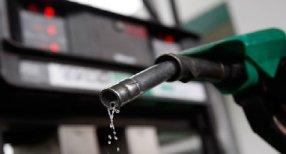
The average retail price of Premium Motor Spirit (Petrol) in Nigeria reached an unprecedented high in May 2024, with consumers in Jigawa State paying ₦937.50 per litre, according to the latest report from the National Bureau of Statistics (NBS). This marks a significant increase since the removal of the petrol subsidy by President Bola Tinubu on May 29, 2023.
The NBS report, titled ‘Premium Motor Spirit (Petrol) Price Watch (May 2024)’, highlights the steep rise in petrol prices across the country. The average price paid for petrol nationwide was ₦769.62, reflecting a staggering 223.21 percent increase compared to May 2023, when the average price was ₦238.11. Additionally, the month-over-month increase from April 2024 was 9.75 percent, up from ₦701.24.
A closer look at the state-by-state analysis reveals that Jigawa State had the highest average retail price at ₦937.50. Following Jigawa, Ondo and Benue States recorded prices of ₦882.67 and ₦882.22, respectively. Conversely, Lagos, Niger, and Kwara States had the lowest average retail prices, at ₦636.80, ₦642.16, and ₦645.15 respectively.
On a regional level, the North-West Zone had the highest average retail price of ₦845.26, while the North Central Zone recorded the lowest price at ₦695.04.
The removal of petrol subsidies has had a significant impact on inflation. As of May 2024, the inflation rate surged to 33.95 percent, with food inflation hitting 40 percent. These rising costs are creating additional financial pressure on consumers across the country.
Despite the rising prices reported by the NBS, the Nigerian National Petroleum Company Limited (NNPCL) has announced that it will not increase petrol prices at its retail outlets, which currently sell petrol at around ₦568 per litre. This is a significant jump from the ₦238 per litre recorded in May 2023.
The sharp increase in petrol prices has led to widespread concern among consumers and has prompted discussions about the broader economic implications. The government’s decision to remove the petrol subsidy continues to reverberate through the economy, affecting everything from transportation costs to the price of goods and services.





